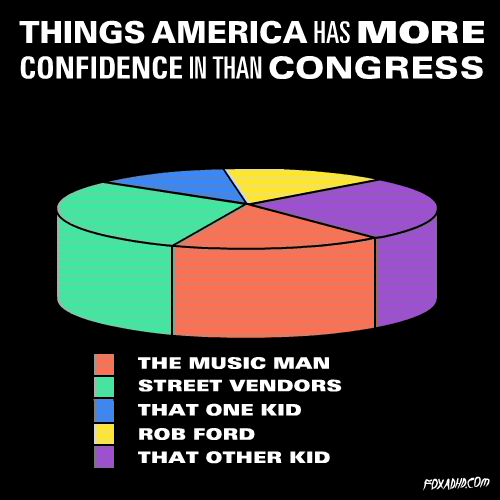
A consistent mistake we make in the era of the internet is to focus on the user experience and ignore the systemic effects. We love to gaze at the shiny object, but we don’t take enough time to step back and understand the big picture. The rise of Uber is a great example of this.
Uber is not a transportation or logistics company. For a long time I liked to argue that Uber was a media company that specialized in algorithms and data. However now I’m starting to see Uber as even larger than that, not just a conglomerate, but an actual sovereign entity.
The United States of Uber is an emerging federation of co-operating entities that uses data, to make money, and accumulate power.
At the heart of this rising state are the algorithms that sort data, and rank subjects. While we do not have a full picture of how these algorithms operate, we are getting glimpses of their purpose and effects via various initiatives and disputes.
For example, Judge Jed Rakoff of the United States (of America) District Court in Manhattan is currently hearing an antitrust case against Uber that argues the company conspires to fix prices (in the form of their surge pricing policy). In denying a motion to dismiss the case, Judge Rakoff acknowledges the power of the algorithm, citing its genius in his argument:
Judge Rakoff then proceeds to cite the case of the Silk Road and how the design of such systems, while facilitating automation, do not absolve the creator of agency or responsibility:
Meanwhile a federal court in San Francisco will be hearing a case in June that argues Uber drivers should receive all the benefits and protections of employees, rather than be merely designated as contractors who are “sharing” their vehicles.
There’s interesting research by Alex Rosenblat and Luke Stark that contributes to the argument that Uber drivers are not contractors or at least not in a position to negotiate a proper contractual relationship. Their argument focuses on the persuasive if not coercive role of the Uber algorithm:
Alex elaborates on this research in a recent post for the Harvard Business Review titled “The Truth About How Uber’s App Manages Drivers”, as well as her thoughts on the price-fixing trial.
The Guardian in January reported that Uber is using driver’s smartphones to monitor their driving habits, without their knowledge or explicit consent.
Research conducted on human subjects is something that raises significant ethical considerations, and yet this is a clear example of that, and suggests the company is probably conducting other research and analysis of their drives and passengers.
Which is why the issue of Uber’s power is so important. The data that the company is able to collect and correlate is substantive. On a surface level this includes data about traffic, about urban usage patterns, and about personal preferences, whether where you go (home, work, entertainment) or what you eat (UberEats). However it can also include much more valuable data, especially when it comes to facilitating or enabling marketplaces.
Take for example the company’s latest initiative, UberPITCH. Described as “a collaborative project that facilitates innovation within local startup communities” the service involves matching up a prospective investor with an entrepreneur who wants to pitch them an investment idea.
For several hours on a specific day in specific cities, Uber users are invited to try and catch a ride with a notable investor or venture capitalist who is open to hearing their pitch. You’re given 15 minutes, 7 to pitch, and 7 to discuss (1 minute to say hi I guess), before you’re dropped off and the next person gets in to make their pitch.
While UberPITCH is arguably a marketing stunt to get people signing up and using the service (not to mention talking about Uber as I am doing now) it also speaks to a potential diversification of Uber’s services based on data profiling. After all, Uber knows who uses the service, and they have rankings for all those users based both on driver/user reviews but also any other data they can get their digital hands on.
For example what if Uber got into the financial matchmaking service and was able to secure a small commission from any deal that they helped facilitate. What if Uber paid certain investors just to hear pitches, who after all are always looking for the next thing to invest in. What if they matched them up while they went about their usual commutes? What about dating in general? Too risky? Or can the algorithms adapt to that kind of sorting and ranking as well?
Given Uber’s growing knowledge of our urban environments and the people who move through them, there’s considerable potential for the company to facilitate all sorts of social structures, relationships, and transactions that potentially give them a sort of power that neither corporate conglomerates nor political parties or associations have traditionally possessed.
Let’s also not forget Uber’s track record of asking for forgiveness rather than asking for permission. Instead of working with public policy planners and elected representatives the company has consistently invaded a market, defied rules, and waited until their power and presence was unquestionable before sitting down to negotiate terms.
Philip Napoli, a Professor and Associate Dean for Research at the School of Communication and Information at Rutgers University, argues that institutional theory can help us understand and appreciate the role and power that algorithms play in our society.
With that in mind, what if Uber, as a collection of algorithms, is itself a new kind of growing institution? An emerging state that challenges the power and ability of existing nation states? A new society growing within the shell of the old?
Something to consider as Uber continues to grow and the lawsuits against it offer insights into the company’s practices and impact. What is their end game? Why are they going? What services and markets can they expand into?


